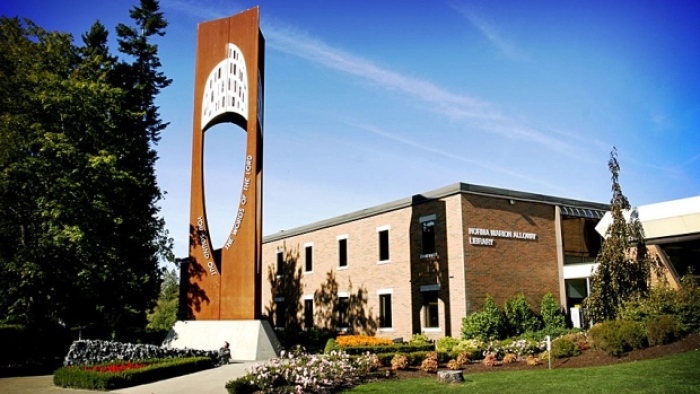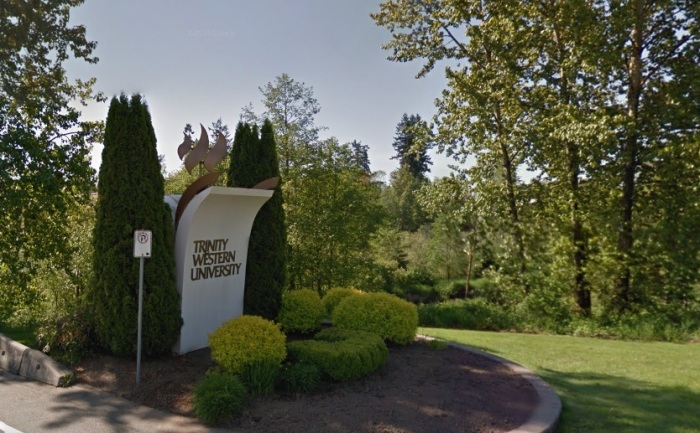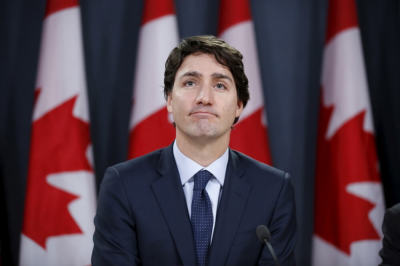Canadian Christian Law School Fights Accreditation Ban Over Opposition to Homosexuality

A Christian university in Canada is appealing a court ruling banning its accreditation because the school opposes homosexuality.
Trinity Western University argued before the British Columbia Court of Appeal on Wednesday that the province's Law Society should not ban the school from accreditation over its biblical stance on issues such as homosexuality.
TWU is being represented in part by the Evangelical Fellowship of Canada and Christian Higher Education Canada. This is because the university is an affiliate of the EFC and a member of the CHEC, according to EFC President Bruce Clemenger.
Clemenger told The Christian Post that he and his organization "are very concerned about the implications of this case for religious freedom in Canada."
"We believe the stakes are very high," said Clemenger. "The law society is not concerned about the academic requirements. TWU has a reputation for scholastic excellence and their proposed law school meets the Federation of Canadian Law Societies' rigorous academic requirements."
"Their objection is that TWU is a Christian school and that students and staff are required to abide by a biblically-informed 'community covenant.' The issue is about beliefs, not abilities. It is the faith orientation, not the academic qualifications, that is being challenged."

A Christian University, TWU has found itself in legal battles in multiple Canadian provinces over its Christian stance on sexual ethics.
At specific issue is the university's Community Covenant, which requires students and faculty to "voluntarily abstain" from "sexual intimacy that violates the sacredness of marriage between a man and a woman."
"The university's mission, core values, curriculum and community life are formed by a firm commitment to the person and work of Jesus Christ as declared in the Bible," reads the covenant.
"The community covenant is a solemn pledge in which members place themselves under obligations on the part of the institution to its members, the members to the institution, and the members to one another."
The Community Covenant also calls for its community to abstain from "gossip, slander, vulgar/obscene language," ... "stealing, misusing or destroying property belonging to others," ... "drunkenness, under-age consumption of alcohol, and the use or possession of illegal drugs."
Last year, TWU's legal efforts had mixed results. In January of 2015, the Nova Scotia Supreme Court ruled in favor the university against that province's Law Society.
Justice Jamie S. Campbell, author of that opinion, concluded that the Law Society's "resolution and regulation infringe on the freedom of religion of TWU and its students in a way that cannot be justified."
"For many people in a secular society religious freedom is worse than inconsequential. It actually gets in the way. It's the dead hand of the superstitious past reaching out to restrain more important secular values like equality from becoming real equality," wrote Campbell.
"The discomforting truth is that religions with views that many Canadians find incomprehensible or offensive abound in a liberal and multicultural society. The law protects them and must carve out a place not only where they can exist but flourish."
Last July, however, a three-judge Divisional Court of the Ontario Superior Court of Justice ruled against TWU, labeling its Community Covenant "discriminatory."
"The fact remains that the effect of the Community Covenant is to exclude certain persons from eligibility for all of the spaces available at TWU's law school. ... That reduces their opportunities for acceptance to law school in comparison with all other persons, and it does so on a discriminatory basis," read that ruling.
Justin Cooper, executive director of Christian Higher Education Canada, told CP that TWU also won at the lower level in British Columbia.

"All three cases have been appealed to their respective provincial courts of appeal with NS having been heard last month, [British Columbia] right now and [Ontario] on June 6-7," explained Cooper.
"Decisions will likely be handed down early in the fall. It is also important to keep in mind that the federal law school accrediting body did approve TWU's program, and this has not been opposed by the other seven provincial legal societies."
The university's ongoing legal battles come as popular Canadian Prime Minister Justin Trudeau expressed support for proposed legislation that would criminalize anti-transgender speech.
"As a society, we have taken many important steps toward recognizing and protecting the legal rights for the LGBTQ2 community — from enshrining equality rights in the Canadian Charter of Rights and Freedoms to the passage of the Civil Marriage Act," said Trudeau in a speech last month.
"There remains much to be done, though. Far too many people still face harassment, discrimination, and violence for being who they are. This is unacceptable."





























